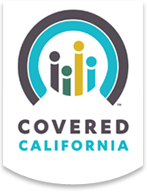FAQs - Personal Insurance
Following are a series of frequently asked questions (FAQs) and answers about personal insurance in general.
What can I do to lower my auto premium?
How can I lower my homeowner insurance premium?
How can I lower my Boat Insurance premium?
What's "full coverage"?
Am I covered if I drive someone else's vehicle?
What kinds of records are needed to substantiate a homeowner claim?
When renting a vehicle, should I buy the insurance coverage offered by the car rental company?
If my car is in the shop and I need to rent a temporary vehicle, is the rental car covered by my auto insurance policy?
When my child gets his/her driver's license must I add him/her to my insurance policy?
Who is usually covered under an auto insurance liability policy?
Q: What can I do to lower my auto premium?
A. Be sure to talk to your insurance agent about available discounts on car or auto insurance such as multi-car, renewal, claim-free, student discounts, driver training, defense driver course, anti-lock brakes, air bags, anti-theft devices, and auto/home discounts. Ask how much you can save by increasing your deductibles.
Q: How can I lower my homeowner insurance premium?
A. Insurers frequently award lower rates to homeowners who guard against theft, accidents and other losses. And companies may provide discounts to premium for multiple-customers (home and auto). Here are some things you can do that generally qualify for lower premiums:
- Secure your home with deadbolts and window locks.
- Install a security system with outside signal and connection to local police.
- Install and maintain smoke detectors.
- Install a sprinkler system for fire.
- Install a fire alarm that automatically alerts the local fire department.
- Purchase your auto and home insurance from the same company.
Q: How can I lower my Boat Insurance premium?
A. Safety Equipment Discounts are available for safety equipment. If your boat is equipped with any of the following, check with your agent or broker to see if you qualify: GPS, Ship to Shore, VHF, Depth Sounder, Halon system, Fume detector, Alarm System Loran, and Boating Safety Courses. If you have taken the Coast Guard certification course, check with your current company as to the availability of a discount.
Q: What's "full coverage"?
A. The term "full coverage" is a term that means the legally required or most commonly requested coverages. The term "full coverage" does not mean that everything is covered no matter what happens. "Full coverage" typically includes Bodily Injury, Property Damage, Uninsured and Underinsured Motorist, Damage to a covered vehicle (also known as Comprehensive and Collision), and any other coverages available such as rental car, towing, road service, or additional equipment coverage. Your auto insurance policy declaration page lists the coverages you have selected.
Q: Am I covered if I drive someone else's vehicle?
A. The coverage provided varies from state to state and you should consult with your insurance agent for details. Generally, you are covered only for liability to the third parties unless the owner is a resident of your household, or the vehicle is furnished for your regular use. In many states, you are not covered for physical damage to the borrowed vehicle. Any coverage provided is over and above the collectible coverage provided by the owner of the vehicle.
Q: What kinds of records are needed to substantiate a homeowner claim?
A. It is recommended that you keep a booklet detailing the items or a videotape of your personal property. Having a complete inventory record at the time of loss could save you thousands of dollars because no one remembers everything, and unless written down, lost items will go unclaimed. The booklet should be kept in a safe place, preferably not at home. Keep it in a safe deposit box or with your insurance agent. It is also a good idea to retain all bills for major purchases and additions to the structure of your home. These could serve as proof of purchase in the event of a claim and should also be kept in a safe place. Finally, take pictures of or videotape all these items. Lay china and silverware on a table so that the picture will show the number of pieces and other details such as the design. Keep the pictures and all receipts in a safe place.
Q: When renting a vehicle, should I buy the insurance coverage offered by the car rental company?
A. If you have auto insurance protection on your personal vehicles, you do not need to buy extra insurance.
Q: If my car is in the shop and I need to rent a temporary vehicle, is the rental car covered by my auto insurance policy?
A. Rental car coverage is only for vehicles that have been in an accident, not for cars experiencing mechanical failure.
Q: When my child gets his/her driver's license must I add him/her to my insurance policy?
A. Yes. All licensed drivers living in the household need to be listed on the auto policy unless they have their own auto insurance elsewhere.
Q: Who is usually covered under an auto insurance liability policy?
A. An auto insurance liability policy usually covers the following people:
- Named insured -- the person or persons named in the policy, no matter what car they are driving.
- Spouse -- even if the spouse of the named insured is not named on a policy, liability insurance almost always covers him or her, unless the couple does not live together.
- Other relatives -- anyone living in the household with the named insured related to the insured by blood, marriage or adoption, usually including a legal ward or foster child.
- Anyone driving the insured vehicle with permission -- someone who steals the car is not covered.


